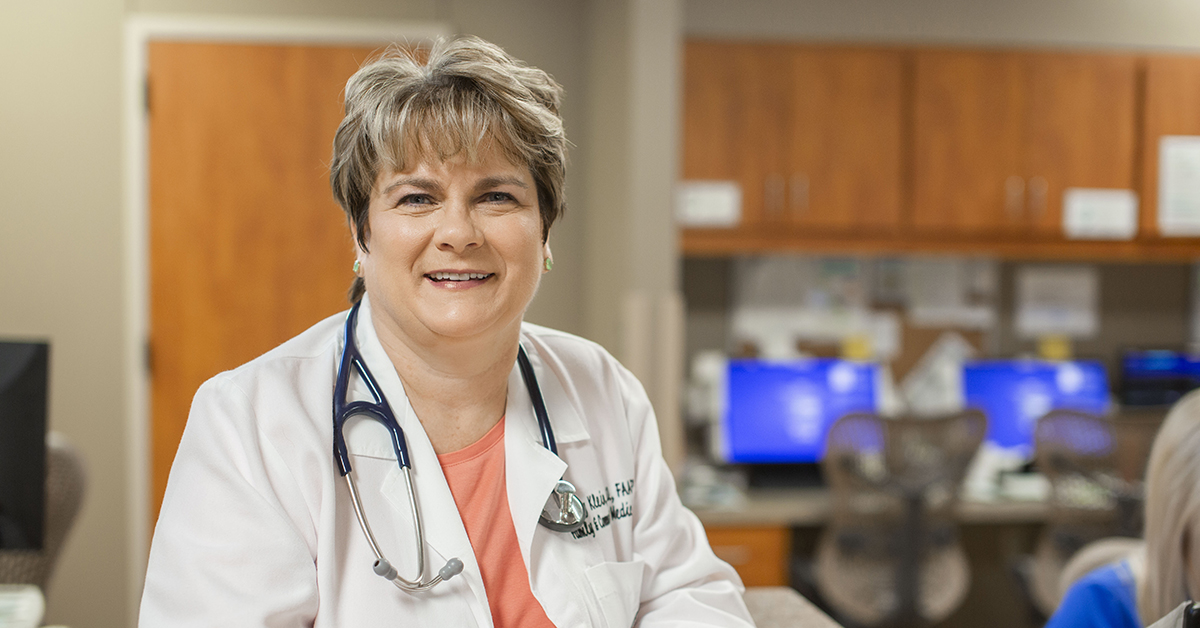Holidays Provide Opportunity to Discuss Family Medical History and Health Care Directives

As the holiday season approaches, many across the country are looking forward to reuniting with loved ones to share good food, old stories and hopes for the future. And because of the COVID-19 pandemic, it may be the first such gathering in several years for some families, which could add special meaning to the 2021 festivities.
Kelly Klein, M.D., a family medicine doctor for Texas Tech Physicians and program director for the hospice and palliative medicine fellowship program at the Texas Tech University Health Sciences Center School of Medicine, said holiday gatherings also are a good time to discuss family medical histories.
“We inherit more from our parents than our height or our eye color,” Klein said. “More importantly, we inherit the tendency to have certain diseases, so we need to know our family health history to find out if our parents or grandparents or other family members had any chronic medical illnesses, or if they had any genetic illnesses that might be passed on to us. Even things like mental health issues that we might inherit are all good things that we need to be able to know about and talk to our doctor about because it influences our health greatly.”
In addition to our parents, Klein said it's important to also ask about grandparents, aunts and uncles and siblings. In fact, she recommends seeking information that goes back at least two generations. It’s especially important to learn about any history of chronic conditions (e.g., diabetes, hypertension and heart disease), genetic diseases such as sickle cell anemia and mental health disorders such as depression or anxiety.
“Sometimes we forget that those [conditions] are likely to be inherited, or we think of them as being something we deal with individually, but those things could be inherited,” Klein added.
Klein said holiday gatherings also provide opportunities to discuss medical directives such as living wills, medical power of attorney designations and do-not-resuscitate (DNR) orders. Forms for all of these directives are available from most physicians and attorneys; they also are available online and can be filled out ahead of time without the aid of an attorney.
“Texas has an out-of-hospital DNR form that can be signed ahead of time that says the person doesn't want any extraordinary measures done,” Klein said. “There's [also] a newer version of that DNR form for someone who is a patient in a hospital, and doesn't want any heroic measures done.”
If any of the forms have not been addressed, Klein recommends doing so as soon as possible. Once a person becomes hospitalized, they may be too sick to discuss their wishes. She compared it to an insurance policy for one’s final wishes.
“When the time comes, someone will know what your wishes are ahead of time,” Klein said. “If you wait till you're in the hospital and very ill, you might not be able to tell the providers what you want.”
Klein said people who are adopted or don’t have access to their family medical history should speak first to their primary care physician to see if they offer genetic testing or genetic counseling. If one’s physician does not offer those services, a home genetic test could be a viable option.
“A home genetic test is not a bad way to go, especially if somebody is adopted or doesn’t know much about their biological parents, but first talk to your primary care provider about it,” she said.
And while some people may not want to know about their genetic makeup or any potential illness that may crop up in the future such as diabetes or cancer, Klein reminds her patients that knowledge is power; the sooner a person learns about potential health issues, the sooner they can take preventative measures.
“Sometimes it is a little scary to know that you might be at risk of certain things, but the more we know, the more we can look for signs early,” Klein pointed out. “It never hurts to know.”
Related Stories
The John Wayne Cancer Foundation Surgical Oncology Fellowship Program at Texas Tech University Health Sciences Center Announced
TTUHSC is collaborating with the John Wayne Cancer Foundation and has established the Big Cure Endowment, which supports the university’s efforts to reduce cancer incidence and increase survivability of people in rural and underserved areas.
Making Mental Health a Priority in the New Year
Sarah Mallard Wakefield, M.D., a psychiatrist with Texas Tech Physicians, talks about strategies to combat widespread and growing anxiety.
TTUHSC Dean to be Inducted into the National Academies of Practice as Distinguished Fellow
Gerard E. Carrino, Ph.D., MPH, dean of the TTUHSC Julia Jones Matthews School of Population and Public Health, will be inducted into the National Academies of Practice (NAP) as a Distinguished Fellow of the Public Health Academy.
Recent Stories
National Academy of Inventors Names TTUHSC Faculty Senior Members
The National Academy of Inventors (NAI) has designated two current and one former TTUHSC faculty researchers as Senior Members.
The John Wayne Cancer Foundation Surgical Oncology Fellowship Program at Texas Tech University Health Sciences Center Announced
TTUHSC is collaborating with the John Wayne Cancer Foundation and has established the Big Cure Endowment, which supports the university’s efforts to reduce cancer incidence and increase survivability of people in rural and underserved areas.
TTUHSC Receives $1 Million Gift from Amarillo National Bank to Expand and Enhance Pediatric Care in the Panhandle
TTUHSC School of Medicine leaders accepted a $1 million philanthropic gift from Amarillo National Bank on Tuesday (Feb. 10), marking a transformational investment in pediatric care for the Texas Panhandle.
